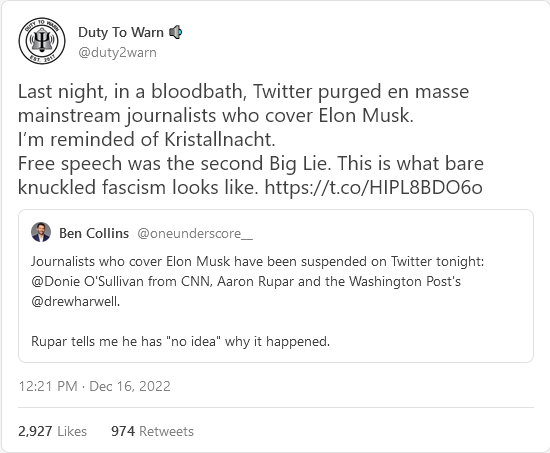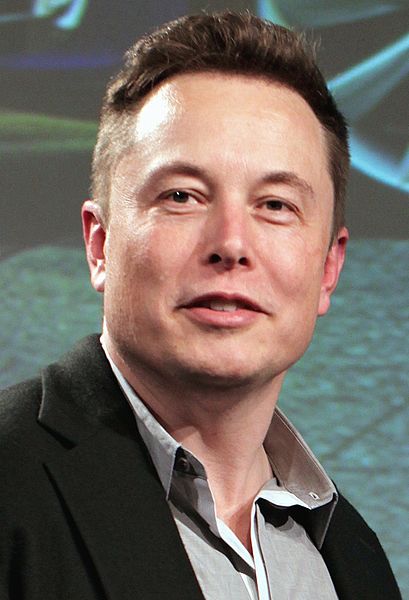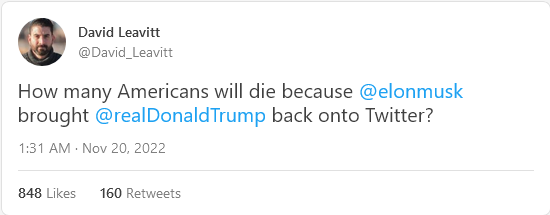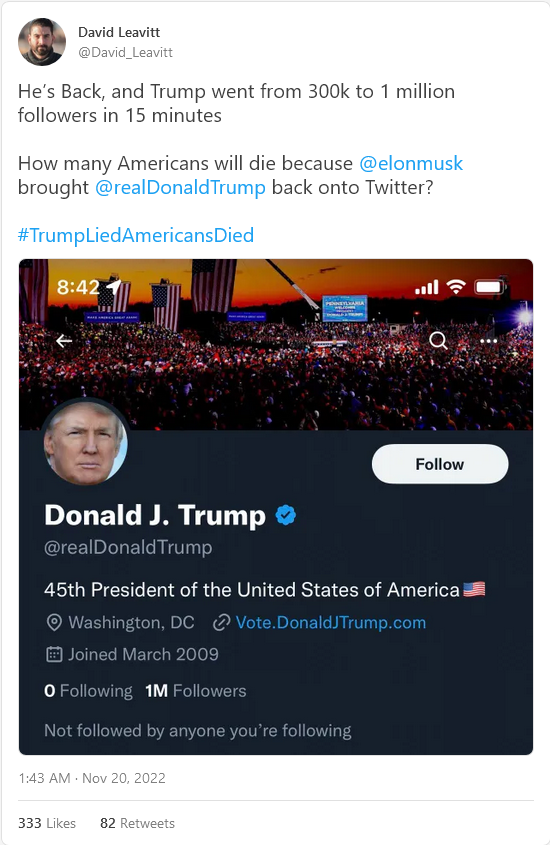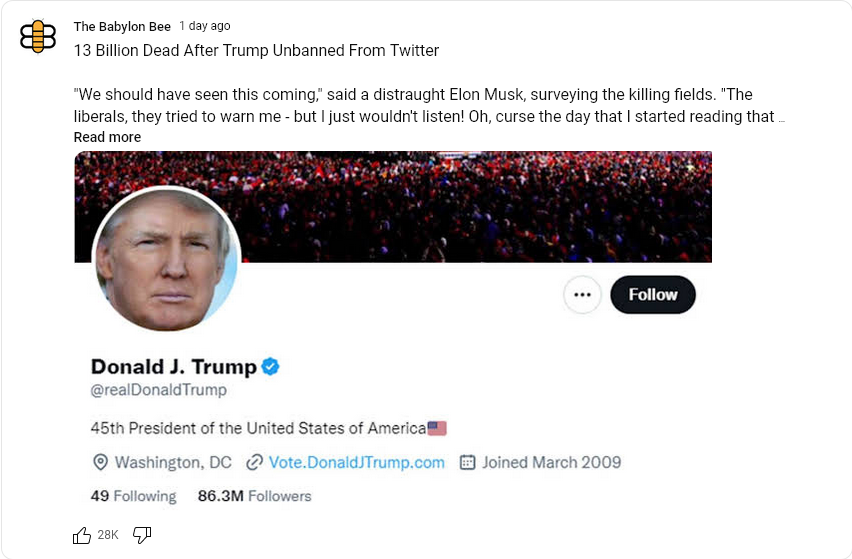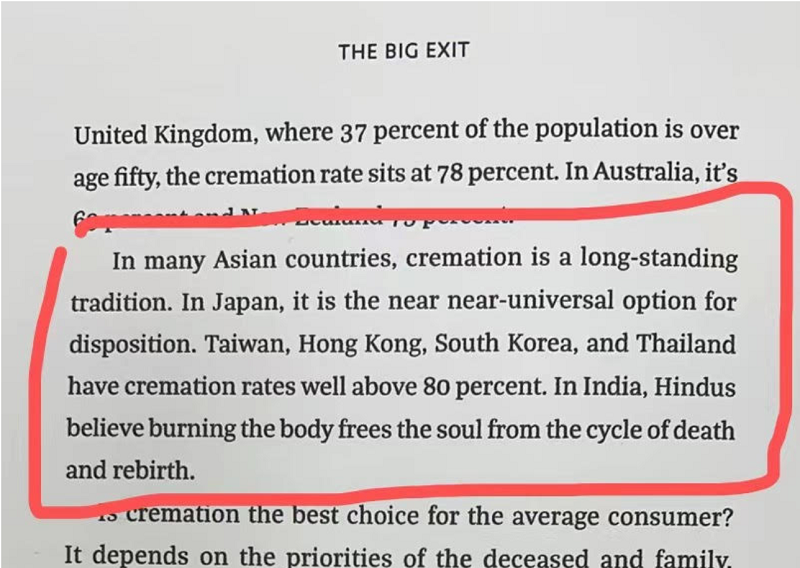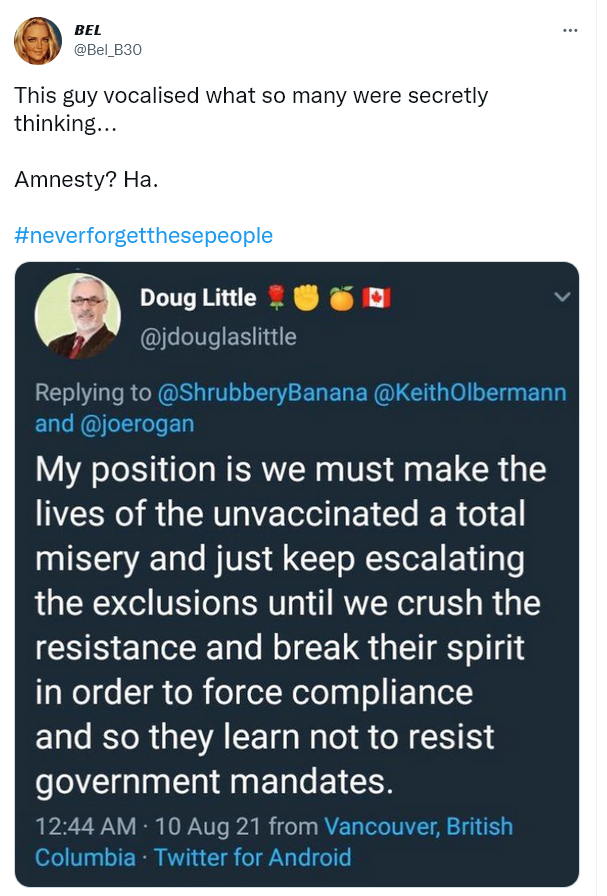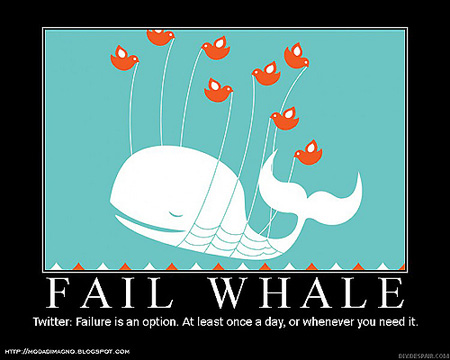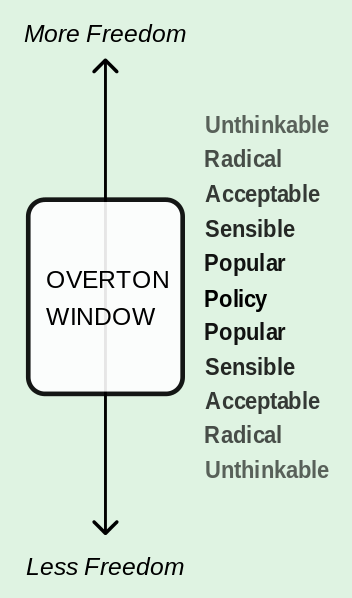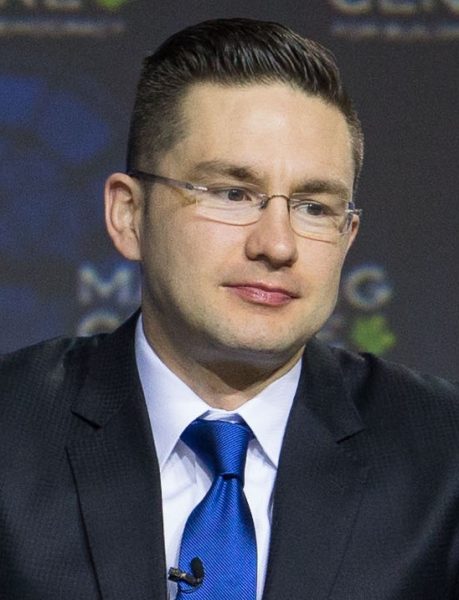“I’m not going to spend $44 billion to reinstate a satire blog”, Musk said about the Babylon Bee, which had been banned from Twitter in March 2022. “I did it because I was worried about the future of civilization”, he told us late one night.
As far as Musk sees things, “birth rates are plummeting, the thought police are gaining power, and even having an opinion is enough to be shunned. We are trending in a bad direction.”
He says he wants to transform Twitter from a social media platform distrusted and despised by at least half the country into one widely trusted by most Americans. To have it fulfill its highest mission: that of a digital town square where all ideas can be heard, and the best will win out.
“If there is one information source that breaks ranks, then I think it ultimately forces others not to have the same narrative”, he said. “If even one organization competes hard for the truth, others will have to follow.”
To win back that trust, Musk figured it would require being honest about what had, until very recently, been going on at the company he had just bought: the suppression of disfavored users; the curtailing of certain political views; the censorship of stories like the Hunter Biden laptop; and the extent to which the government had tried to influence such decisions.
“We have a goal here, which is to clear the decks of any prior wrongdoing and move forward with a clean slate”, Musk said in one of many conversations that took place over the course of a week. “I’m sleeping at Twitter HQ for a reason. This is a code-red situation.” (He put it even more forcefully on Twitter, where he said that the company was a “crime scene”.) And so he has been sleeping there on-and-off, claiming a sofa. His 2-year-old son, named X, was almost always nearby.
Musk, who is a South African native, analogized the work of cleaning-house at Twitter several times to a kind of Truth and Reconciliation Commission. But what looks to some like truth and reconciliation can look to others like revenge.
At one point after midnight, as Musk showed off a closet of swag, including t-shirts left by the previous crew that said “Stay Woke”, he joked: “The barbarians have crashed through the gates and are pillaging the merch!”
Remember: After Musk made his offer to buy Twitter in April, he tried to get out of it in July, arguing that the company had not been honest about the percentage of fake users and bots on the site. But the company sued to force the deal, and he went ahead with it.
Musk estimates that he paid at least twice what it was worth but that he had to “chew down this hairball” — which is to say, he had to buy Twitter.
The price tag isn’t his only grievance. There’s also the fact that the company, to hear him tell it, wasn’t really a functioning company at all.
When Musk took over, he said, he found Twitter in disarray. Employees had unlimited vacation time and permanent work from home. The company had stopped doing performance reviews altogether, according to a long-time Twitter employee. “As long as Twitter could just keep its head above water and be roughly cash-flow break-even, then that’s all that they cared about”, Musk said.
Musk calls the Twitter he purchased a “non-profit”. Twitter, as it existed, wasn’t pursuing net earnings but “social influence”, he said. “This was fundamentally an activist organization”.
Since he took the helm at Twitter, he has fired 80 percent of the staff. He has insisted that those not prepared to be “extremely hardcore” and work “long hours at high intensity” show themselves out. Several engineers I spoke to had been working 18-hour days for the past month. They looked like it.
“It’s like if an aircraft was going in one direction and then suddenly pulled a U-turn and hit the afterburners in the other direction. That’s what happened to Twitter”, Musk said, making a vroom noise and laughing.

